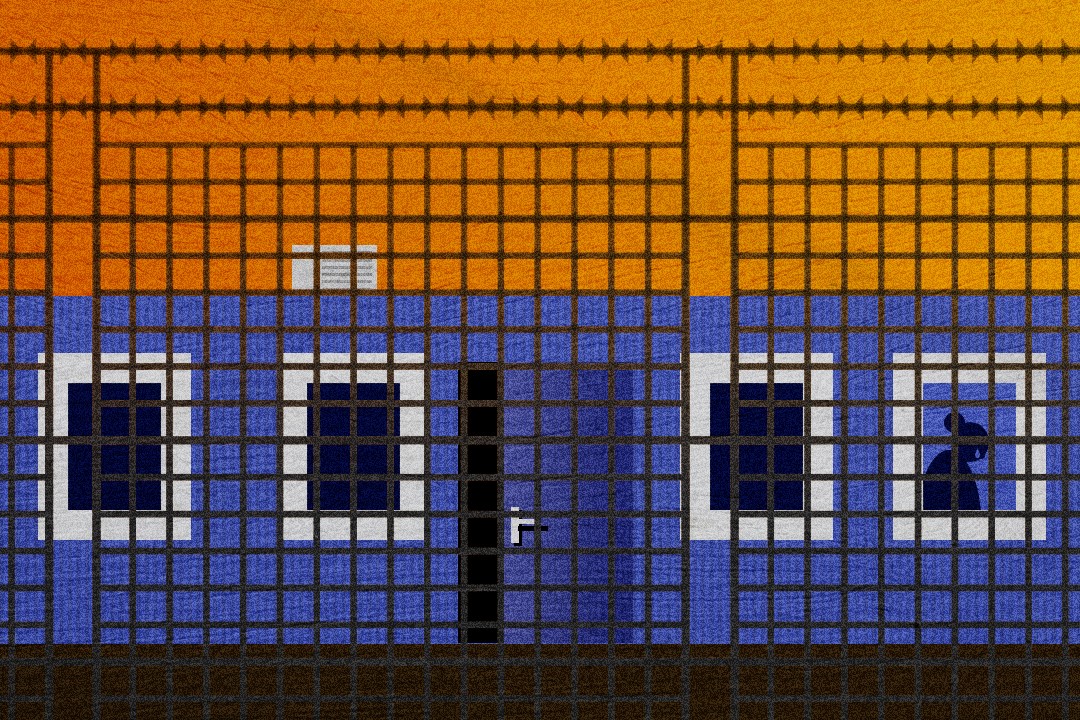
The Hungarian government can’t fool the Strasbourg judges
Translation is available for this content
Váltás magyarraThe Hungarian state violated the human rights of an asylum-seeking boy when it unlawfully detained him for 86 days in prison conditions in the Röszke and Tompa transit zones, the European Court of Human Rights has ruled again. The Hungarian Helsinki Committee’s client will receive €3000 in just satisfaction.
From September 2015 to May 2020, one of Hungary’s most serious mass human rights abuses was detention in transit zones. For five years, thousands of asylum seekers were detained in inhuman and degrading conditions – most of them children. Even children arriving with their families and their parents should not have been detained in such circumstances and for such a long time (some for more than a year), but concerning children fleeing unaccompanied, the violation was even more severe.
17-year-old M.H. was one of such children. He came to Hungary from Pakistan, where his family had fled from Afghanistan when he was 1-2 years old. He had no adult companion; smugglers passed him from hand to hand. He managed to get to the Serbian-Hungarian border with great difficulty. Like so many of his fellow asylum-seekers, he spent months in Serbia before he could enter Hungary’s transit zone in Röszke on 6 April 2017 and finally apply for protection.
However, instead of being welcomed in a supportive environment and with the attention his situation deserved, he had to live with four others in a container, tormented by heat, garbage, hostile guards, monotony, and hopelessness there. He didn’t receive food appropriate to his religion and age, nor sufficient sanitary products. But his biggest concern was that, without adult help and encouragement, he could not get adequate information about anything – most notably, about why he was behind bars despite his claim for asylum. He could not even know when he would be released. His case guardian never exchanged a single word with him.
After 86 days in detention, he received subsidiary protection, was released and finally transferred to the children’s home in Fót.
The Hungarian Helsinki Committee helped the boy appeal to the European Court of Human Rights (ECtHR). In such proceedings, the judges always hear the government’s views on the case. Since 2015, the Hungarian government has tried to justify the unlawful detention of asylum seekers in a number of transit zone cases, and its “argument” has not changed over the years: everything was lawful, professional, and in the detainees’ best interest.
As in the myriad transit zone cases against Hungary before, the government tried to bluff – and failed again.
For example, in response to the asylum-seeking child’s complaint that he had not received any professional psychological help, the government replied that “they would have provided psychological support had he had indicated any need for it”. By contrast, the ECtHR judgment proves that “at the material time the asylum authority had not yet employed psychologists in the transit zones”.
The government also considered the sporadic painting and Hungarian language courses for people aged 14 and over to be a satisfactory “educational activity”. The ECtHR did not. It is crucial for such children that their right to education is fully respected.
The government, after innumerable failed ECtHR cases, continues to insist on the lie that this was not detention, let alone unlawful detention, but “placement”. The harrowing experiences of asylum-seeking children and often starved adults prove otherwise. But even the judges in Strasbourg have long known that this was indeed unlawful detention, mostly of children.
Thus, in the case of M.H., the ECtHR had to conclude once again that the state had violated the asylum-seeking boy’s human rights. Hungary’s action against the child disregarded the prohibition of torture, inhuman or degrading treatment or punishment and the boy’s right to liberty and security.
“This is the 107th case that the Hungarian Helsinki Committee has prevailed at the European Court of Human Rights. It is the 20th case in which the Court has condemned the blatantly unlawful practice of detention in transit zones. Here again, the Hungarian state violated a child’s human rights – a state which, in its words, puts the best interest of the child above all else. If this had been true, neither M.H.’s detention nor this trial would have happened,” – said Szabolcs Miklós Sánta, who represented the boy in the Strasbourg proceedings as the Hungarian Helsinki Committee’s attorney-at-law.